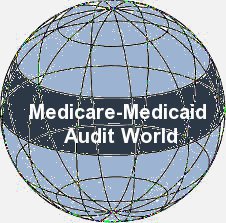 In Part 1 of this post, I provided a brief history of the evolution of the Medicare and Medicaid RAC programs and highlighted provider concerns with the contingent fee part of the program. In this post, I will discuss why I believe that the contingent fee process developed by CMS does not comply with the Fifth Amendment to the United States Constitution and why, if this argument is presented in a proper case, there is a significant possibility that a Federal Court will issue an injunction stopping the program and order the return of the money paid to CMS in response to RAC demands.
In Part 1 of this post, I provided a brief history of the evolution of the Medicare and Medicaid RAC programs and highlighted provider concerns with the contingent fee part of the program. In this post, I will discuss why I believe that the contingent fee process developed by CMS does not comply with the Fifth Amendment to the United States Constitution and why, if this argument is presented in a proper case, there is a significant possibility that a Federal Court will issue an injunction stopping the program and order the return of the money paid to CMS in response to RAC demands.
The Fifth Amendment to the United States Constitution
Among other protections afforded by the Fifth Amendment to the United States Constitution is the guarantee that the Federal Government may not deprive any person of life, liberty, or property, without due process of law. A basic tenet of due process is conceptualized in the Latin phrase “nemo iudex in causa sua” which translates to “no one should be a judge in his own cause.”
 The United States Supreme Court has considered on a number of occasions the circumstances under which the receipt of money by a judge or other decision maker violates due process. It has held that a litigant’s right to due process is violated when the mayor of a town receives a portion of the fines he imposes while acting as a judge. It has also held that a litigant’s right to due process is violated where fines imposed by a mayor while acting as a judge represent a significant portion of his town’s revenue, even though the mayor did not directly receive any part of the fine. In a recent decision, the Court held that due process required a justice of the West Virginia Supreme Court to not participate in an appeal involving a company in which the company and its CEO had contributed significant amounts of money to the justice’s campaign for election to the court. This quotation from the Supreme Court’s opinion in Tumey v. Ohio succinctly sums up why money perverts due process:
The United States Supreme Court has considered on a number of occasions the circumstances under which the receipt of money by a judge or other decision maker violates due process. It has held that a litigant’s right to due process is violated when the mayor of a town receives a portion of the fines he imposes while acting as a judge. It has also held that a litigant’s right to due process is violated where fines imposed by a mayor while acting as a judge represent a significant portion of his town’s revenue, even though the mayor did not directly receive any part of the fine. In a recent decision, the Court held that due process required a justice of the West Virginia Supreme Court to not participate in an appeal involving a company in which the company and its CEO had contributed significant amounts of money to the justice’s campaign for election to the court. This quotation from the Supreme Court’s opinion in Tumey v. Ohio succinctly sums up why money perverts due process:
Every procedure which would offer a possible temptation to the average man as a judge to forget the burden of proof required to convict the defendant, or which might lead him not to hold the balance nice, clear, and true between the State and the accused denies the latter due process of law.
Why the Contingent Fee Arrangement between CMS and the RACs Violates Due Process
 The structure of the program created by CMS gives to the RACs the sole and unreviewable authority to create, from a previously paid claim, a provider overpayment and the right to demand payment from the provider. It is through these actions, taken solely by the RACs, that the RACs create their income. If they want to make more money, they create more overpayments; if they want to make less, they find fewer overpayments. In my opinion, this direct link between the RAC’s income and its decision as to whether a specific claim was improperly billed might lead them not to hold “the balance nice, clear, and true between the State [CMS] and the accused [provider]” as the Tumey Court noted and why the RAC program denies the latter due process of law.
The structure of the program created by CMS gives to the RACs the sole and unreviewable authority to create, from a previously paid claim, a provider overpayment and the right to demand payment from the provider. It is through these actions, taken solely by the RACs, that the RACs create their income. If they want to make more money, they create more overpayments; if they want to make less, they find fewer overpayments. In my opinion, this direct link between the RAC’s income and its decision as to whether a specific claim was improperly billed might lead them not to hold “the balance nice, clear, and true between the State [CMS] and the accused [provider]” as the Tumey Court noted and why the RAC program denies the latter due process of law.
 Medicare-Medicaid Audit World
Medicare-Medicaid Audit World








 conduct a project to demonstrate the use of recovery audit contractors in identifying underpayments and overpayments under Parts A and B of Medicare and to recoup overpayments. Congress further provided that payment may be made to the RACs on a contingent basis from amounts they recovered. In § 302 of the Tax Relief and Healthcare Act of 2006,
conduct a project to demonstrate the use of recovery audit contractors in identifying underpayments and overpayments under Parts A and B of Medicare and to recoup overpayments. Congress further provided that payment may be made to the RACs on a contingent basis from amounts they recovered. In § 302 of the Tax Relief and Healthcare Act of 2006,